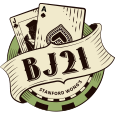re
[i]First, the payoff on a single number at roulette is 35 to 1, which is the same as 36 for 1. Eliminating 2 numbers gets you even with the house.
[/i]
Yes, I just realized that shortly after I posted.
[i]
Because of the kelly divisor. If you have 10% edge, you must divide your your advantage by the ratio of a winning wager to a losing wager, in this case 35, meaning you only bet .35% of your bankroll. This is because of the high probability of a loss on each trial.
[/i]
I meant in comparison to say a BJ BR. Having a larger edge will reduce the frequency and value of a fluctuation, won't it?
With the betting, I am assuming laying bets over about 10 numbers, not just 1. The probability of a loss would be lower. I would favor an even chance (of win/loss), and have a reduced profit per round, than a rare, high return win. It's just working out the balance which is most comfortable. Allowing for a higher margin for error, and covering more numbers should reduce variance, but reduce EV on winning rounds (tell me if I'm wrong).
[i]
I don't want to discourage your interest in this fascinating subject, and I share some of your frustration with some of the negative comments, but it is not the best form of advantage play in terms of % advantage, return on investment, nor absolute return. Trust me, I make it my business to know these things. That is not to say it is not worthwhile.
[/i]
% advantage, it seems it's possible to obtain a much higher edge than in any other casino play (excluding BHing). There are situations in SBing where you can obtain a higher edge, and be more profitable, but I won't comment on that as I don't know enough about it.
It would definatetely seem to be preferable to BJ IMO (when you compare conditions, advantage, variance, etc).










